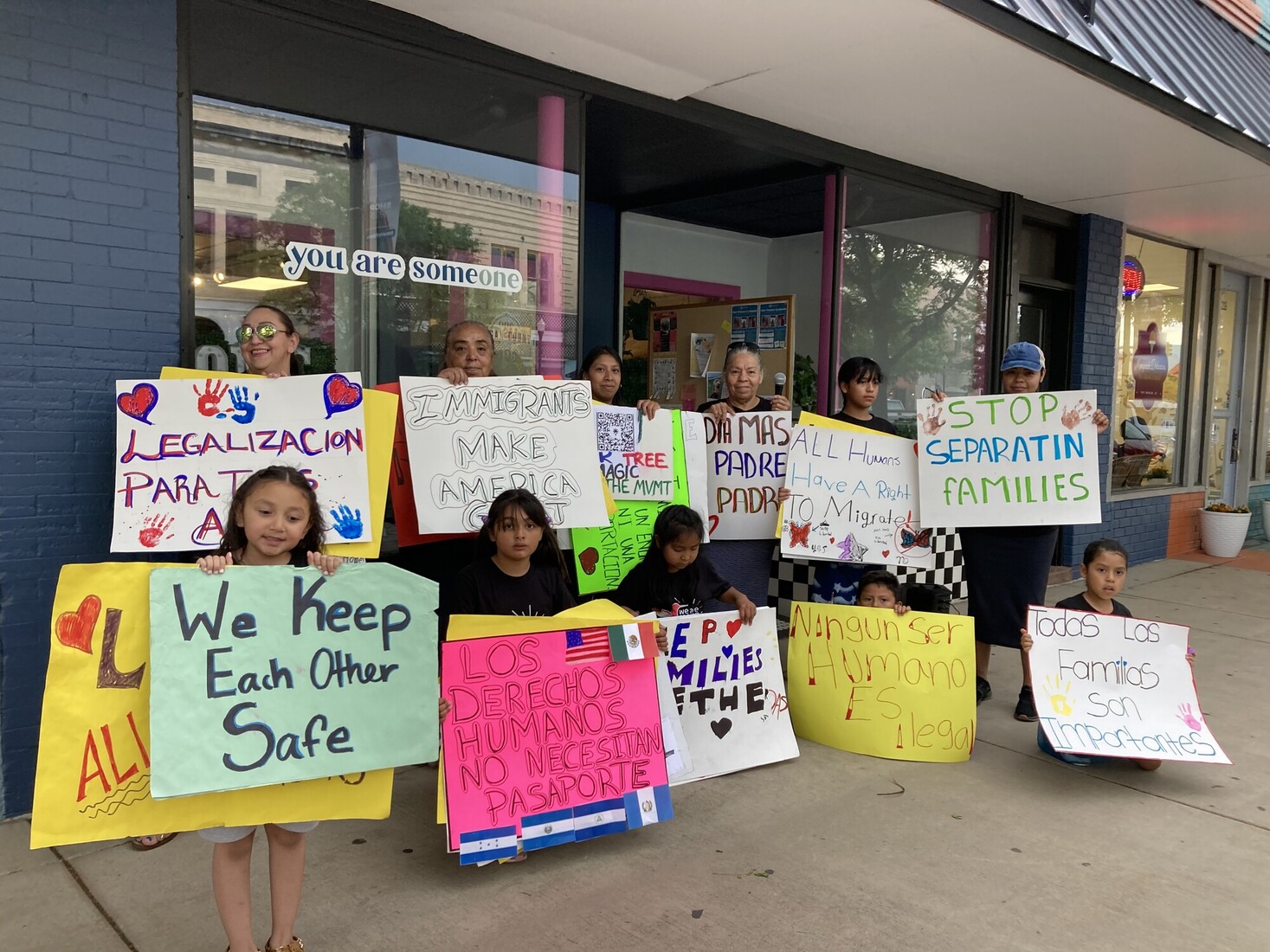
Watch the video above for a quick recap from AFSC's Jennifer Piper. Photo: AFSC/Colorado
A court ruled that President Biden didn’t have the authority to create this program. Applications that were submitted will not proceed at this time and no new applications will be accepted.
As an organization we will continue to insist on a path to citizenship and immigration policies that are fair, dignified, and welcoming. You can learn more about our principles here.
Opportunities to pursue citizenship should be equally available to everyone, regardless of where they were born or when they came. On June 18, the Biden administration announced new legal protections for some undocumented spouses of U.S. citizens and a small number of young people. The move is a step toward a more welcoming immigration system that will treat families with respect and dignity.
This new “parole in place” policy has the potential to make a real difference for an estimated 480,000 people. Unfortunately, it will only benefit 4% of the 12 million immigrants living in the U.S. without any legal path forward—leaving millions of people in limbo. (Read AFSC’s statement on the executive order).
Here’s what to know about the new policy:
1. There is no process to apply for parole in place yet. It will likely be late summer or early fall before a process is announced. First, the government needs to publish the rules and guidelines and then create a way for people to apply.
2. Two categories of people may qualify:
- Category 1: Some undocumented spouses and some undocumented children of U.S. citizens will be able to apply. This would allow them access to a work permit and, in some cases, open a pathway to legal permanent residency.
- Category 2: Certain people who have a degree from a U.S. college and a related job offer may be eligible for a work visa. That work visa may also allow people to become eligible for legal permanent residency more quickly.
According to the Biden administration’s announcement, in order to qualify, as of June 17, 2024, people must have resided in the U.S. for 10 or more years and be legally married to a U.S. citizen, while satisfying all applicable legal requirements.
AFSC strongly encourages all potential applicants to attend local Know Your Rights presentations by trusted organizations. We also recommend that you consult with a qualified immigration attorney to determine whether you meet legal requirements or whether anything in your past history might create problems in your immigration status.
3. The new parole program is an important small step in the right direction. But we need long-term safety and security for all our community members, not just a few. The Biden administration and Congress must immediately take more substantive actions toward a more welcoming, dignified, and fair immigration system.
We must keep pushing for citizenship for all—for all of our undocumented loved ones, neighbors, for people stuck in temporary status like those with TPS, DACA and DED, and for all people seeking safety and peace.

